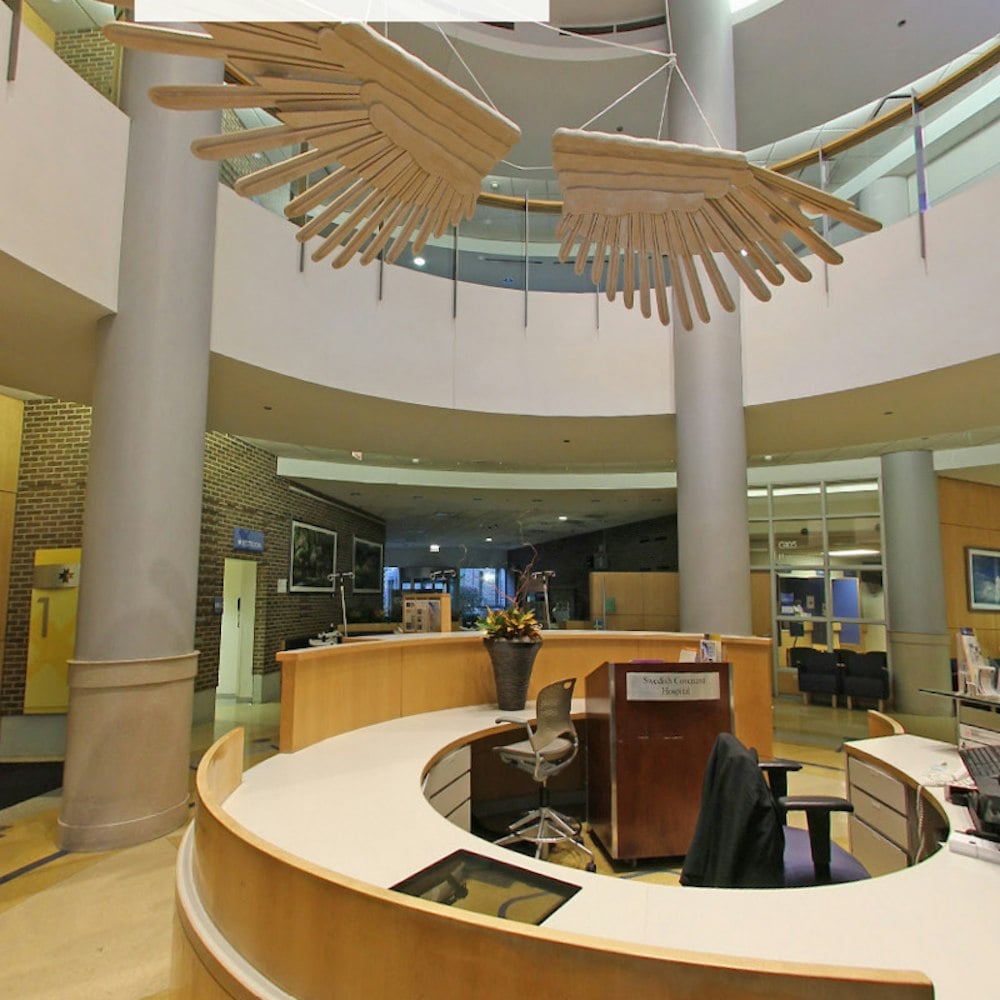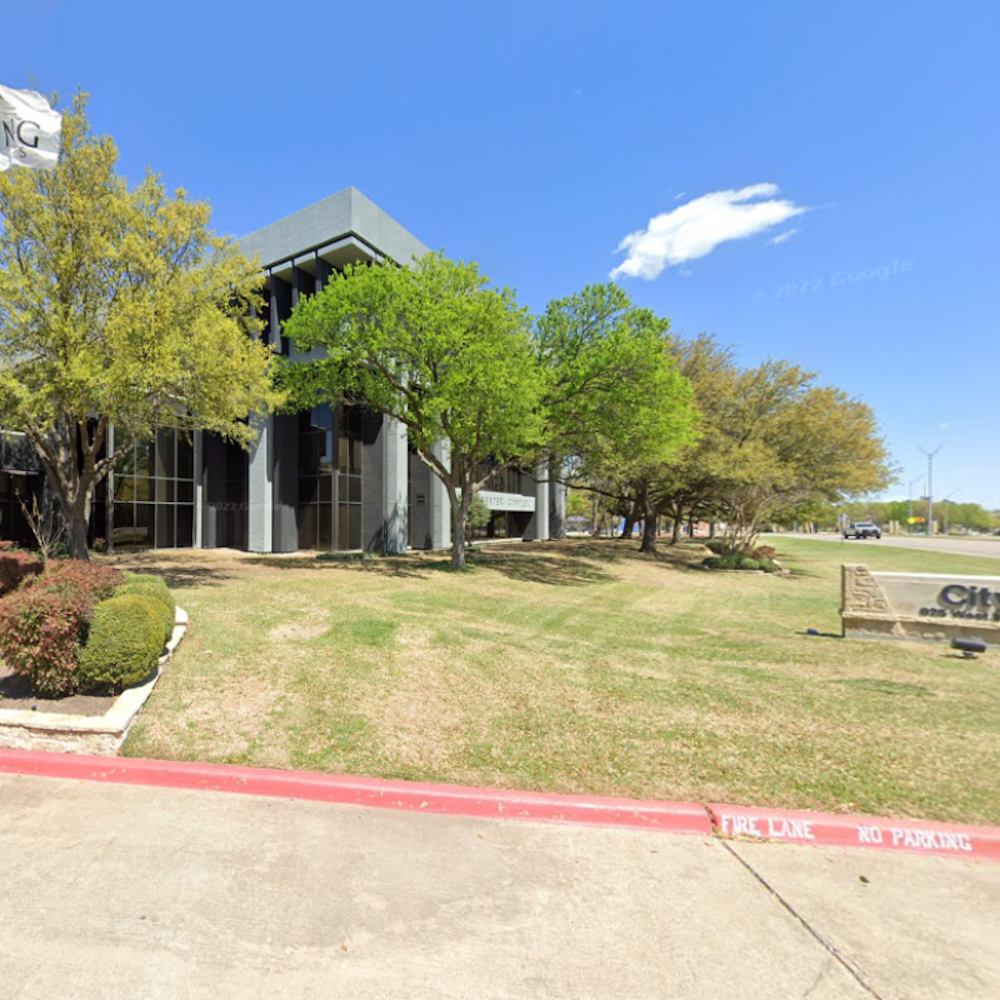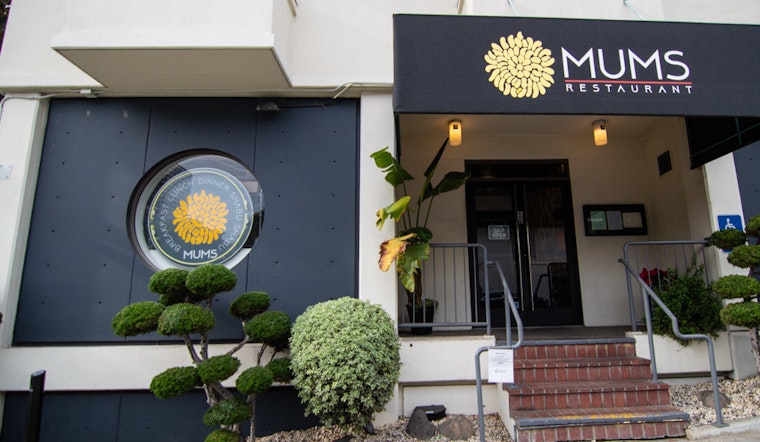
Shabu-shabu may be a popular option for local diners these days, but 25 years ago, that wasn't the case. In fact, there was only one restaurant in the 1990s where San Franciscans could find the traditional Japanese hotpot style of cooking — Mums.
Though it's now known as the "Home of Shabu Shabu," Mums (1800 Sutter St.) was a Japantown mainstay long before it introduced its signature dish.
Originally known as Cafe Mums, the restaurant opened its doors in 1979, on the ground level of what was then the Kyoto Inn. Both the hotel and restaurant were founded by Kintetsu Enterprises Company of America, in an effort to bridge Japanese and American cultures.
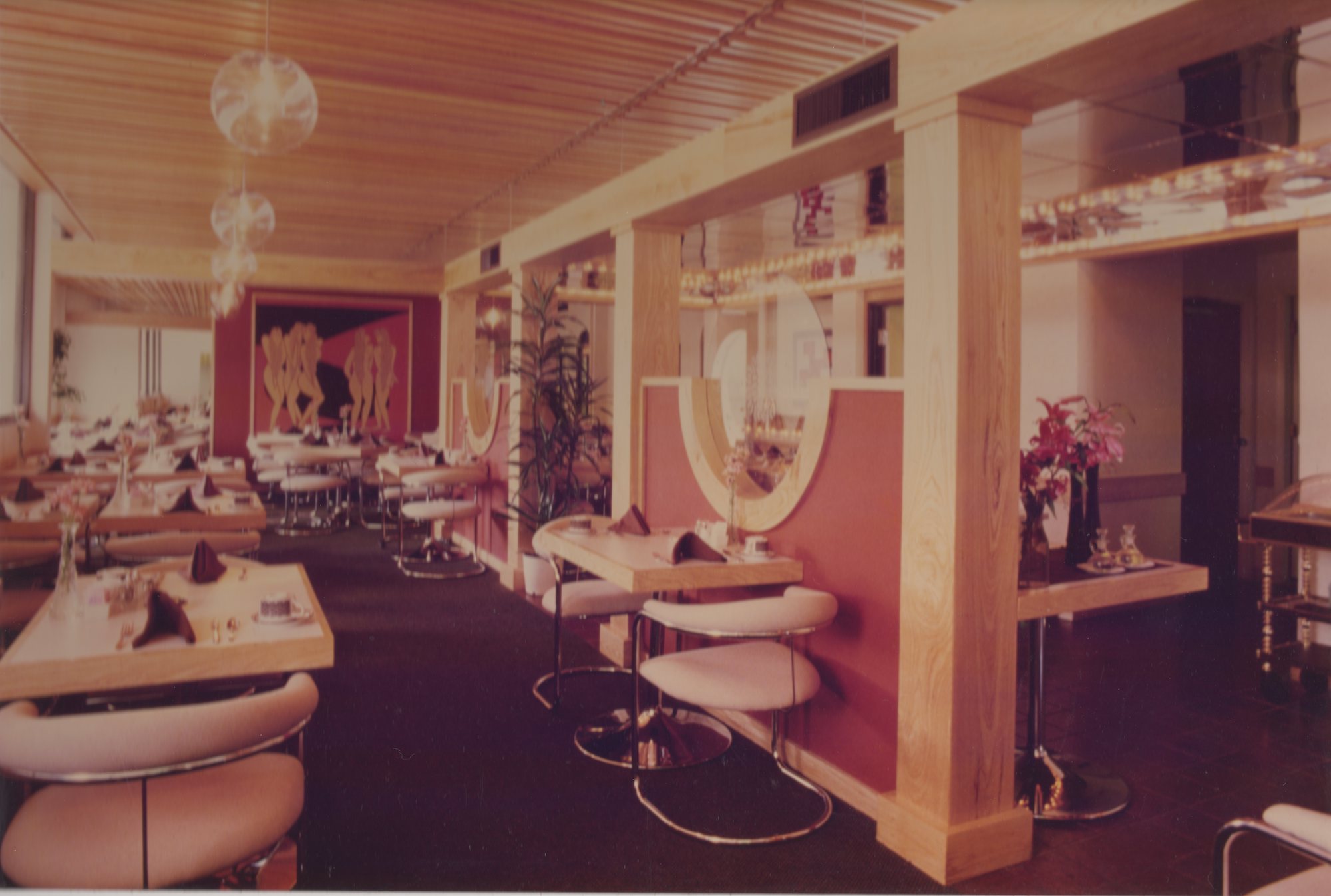
Hoodline spoke with Sarah Tam, the youngest daughter of owner Isidore Tam and a manager at Mums, to learn more about the restaurant's history and how its most famous dish got added to the menu.
"In the beginning, the menu was actually more American than it is now," said Tam, "because there weren't many places with western food in Japantown."
Cafe Mums' original owner, Osaka native Shinji Makigano, developed a menu that featured both the cuisine of his native region and American favorites, such as prime rib.
In 1981, a part-time worker at Mums caught Makigano's eye. Isidore Tam had come to America from Hong Kong, in hopes of someday owning a business. He'd eagerly taken on a part-time position as dishwasher at Mums while also attending culinary school, working a second job, and raising his family.
Under Makigano's mentorship, Tam climbed the ranks to assistant manager, helping run the business for nearly two decades and opening new restaurants as well.
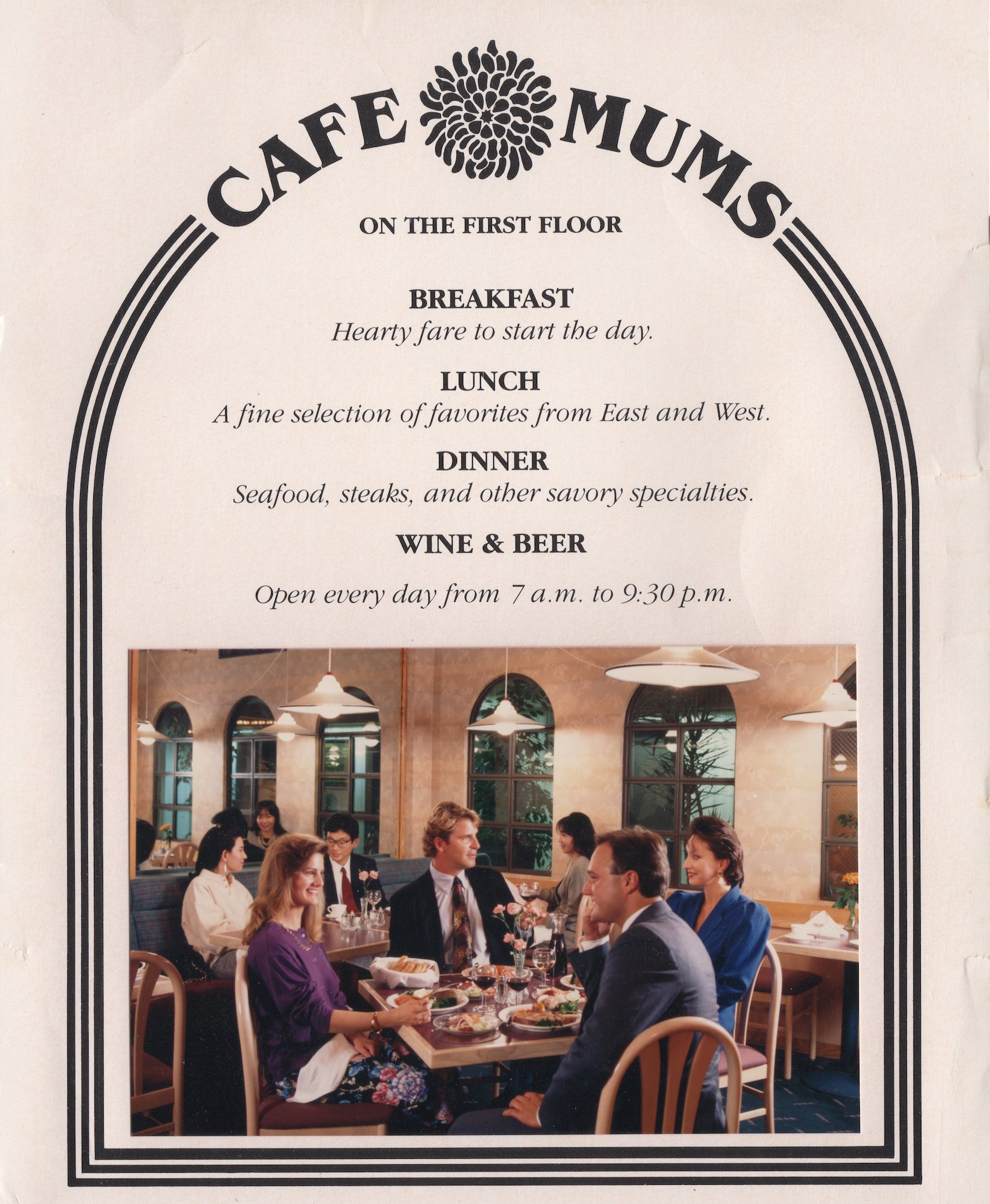
By the mid-1990s, "Shinji’s friend opened a shabu-shabu place in Los Angeles, and when Shinji saw how popular it was, he called my dad and said 'You have one week to add shabu shabu to the menu.'"
Isidore suddenly found his staff scrambling to find the correct ingredients and cookware. "They hustled and bustled," recalled Tam, "and in a week, they had shabu shabu."
Tam explains that although the cuisine has grown in popularity since then, many of San Francisco's other shabu shabu restaurants are closer in style to Chinese hotpot, which tends to be spicier than the traditional Japanese version.
"We'll get people coming in asking where the spicy stuff is, but that's not part of authentic shabu shabu," she said.
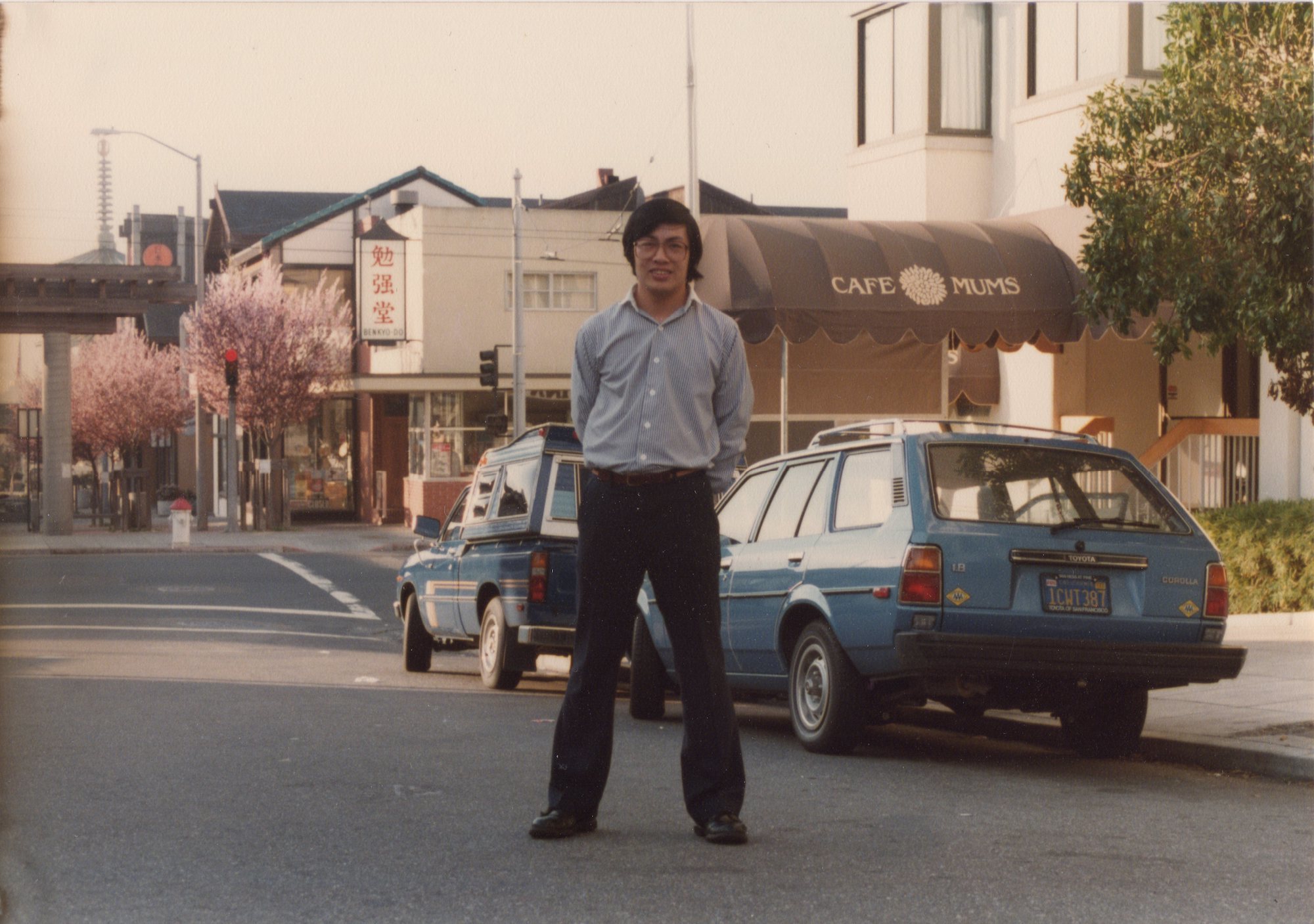
Mums' all-you-can-eat shabu shabu dinner includes a choice of beef, lamb, chicken, or pork, along with an assortment of vegetables, which are cooked at the table in a boiling pot of kombu (seaweed) broth and dipped in flavorful sauces. The meat can be enjoyed with side dishes of noodles or rice.
Because everyone has their own way of combining the ingredients, says Tam, "It’s interesting to see what people do. I've seen lots of families with little kids cooking their own food. It's messy, but that’s the fun of it."
Some of the restaurant's other popular dishes include its Japanese breakfast, curry, yakisoba, tarako (pollock roe) spaghetti, omu rice and cream anmitsu (a fruit and jelly-based dessert).
For those craving American comfort food, the menu also includes staples like pancakes, omelettes, and burgers.
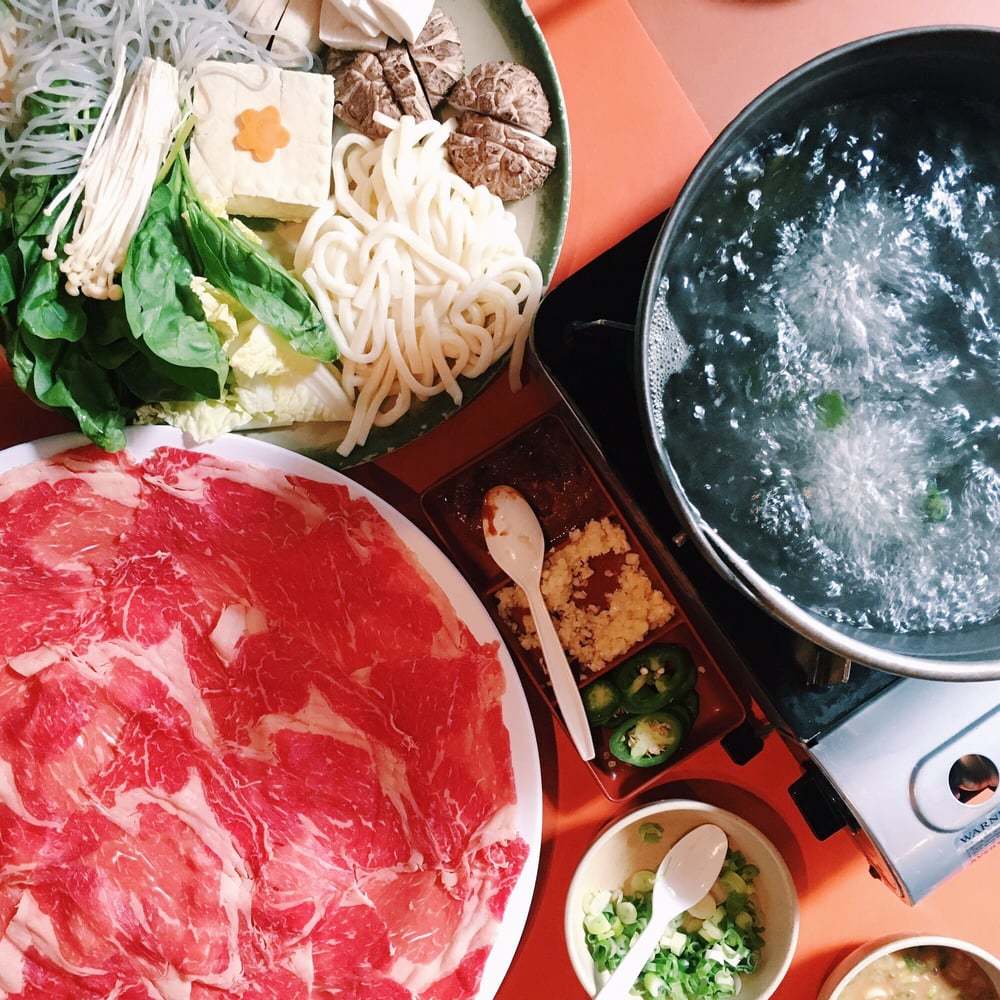
When Shinji Makigano retired in 2000, Isidore Tam took over ownership of Mums. Sarah Tam and her three sisters grew up working there part-time; she recalls chopping mushrooms or peeling daikon in the kitchen after school. Today, she helps run the daily operations of the business.
The family leases their space from the hotel's management, which has changed hands several times. With each change, Tam recalls, Mums underwent renovations to match the hotel's style.
Over the years, hotel management has lobbied to change the restaurant's name and menu, which Tam says her father has politely resisted. (The name "Mums" comes from the chrysanthemum, a flower emblematic of Japanese culture.)
Most recently, in 2013, the hotel was sold and rechristened as the Kimpton Buchanan Hotel. A 2017 renovation gave the restaurant a more subdued, modern look, although the Tam family kept a relic from the restaurant's previous design: a colorful mural by Japanese artist Heisuke Kitazawa.
"I’m glad we kept it, because it initiates a lot of meaningful conversations among our customers," said Tam. "We didn’t want to have just another photo of the Golden Gate Bridge."
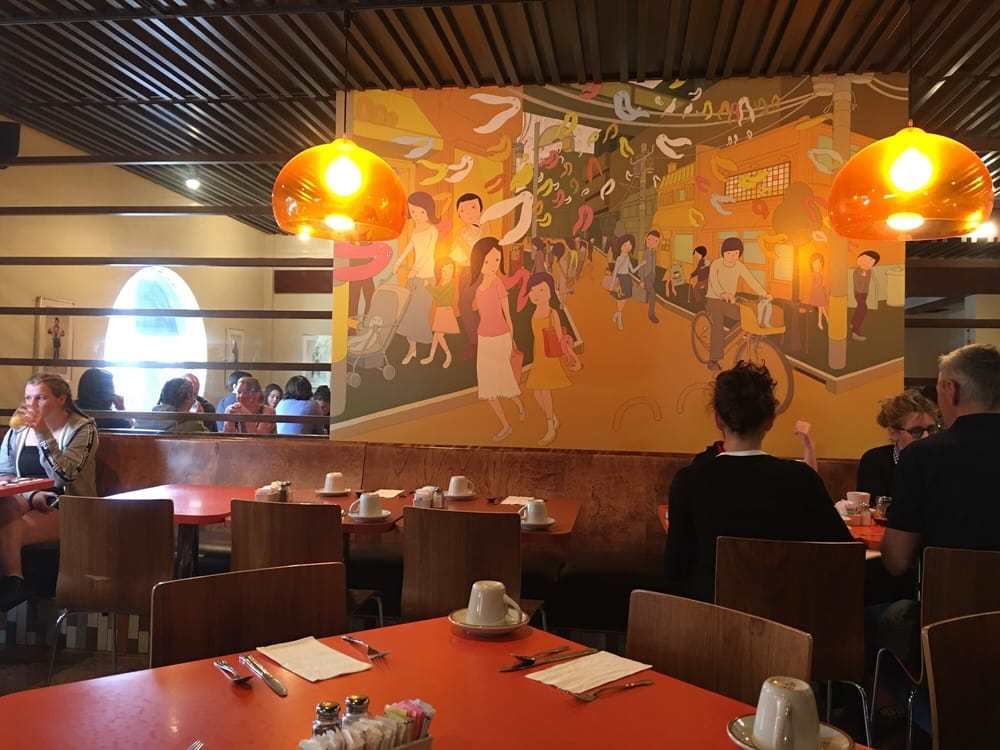
Mums' steadfast sense of identity has given it a lasting legacy, and not just among the Japantown community.
Last month, Mums was named a San Francisco Legacy Business, a distinction awarded to "longstanding, community-serving businesses" that have operated in the city for at least three decades.
"One of our longtime customers, who is an active member of the Japantown community, encouraged us to apply," said Tam, who admits she'd previously been daunted by the application.
With a letter of recommendation from former District 5 Supervisor (and longtime customer) Vallie Brown, Mums was officially added to the Legacy Business Registry in December 2019.
"We are proud and honored to be recognized as a Legacy Business in San Francisco," said Tam, who said the achievement would not have been possible without the support of the local community over the past 40 years. "As a Legacy Business, we will continue to preserve the history, identity, and culture of Japantown in the ways we can."
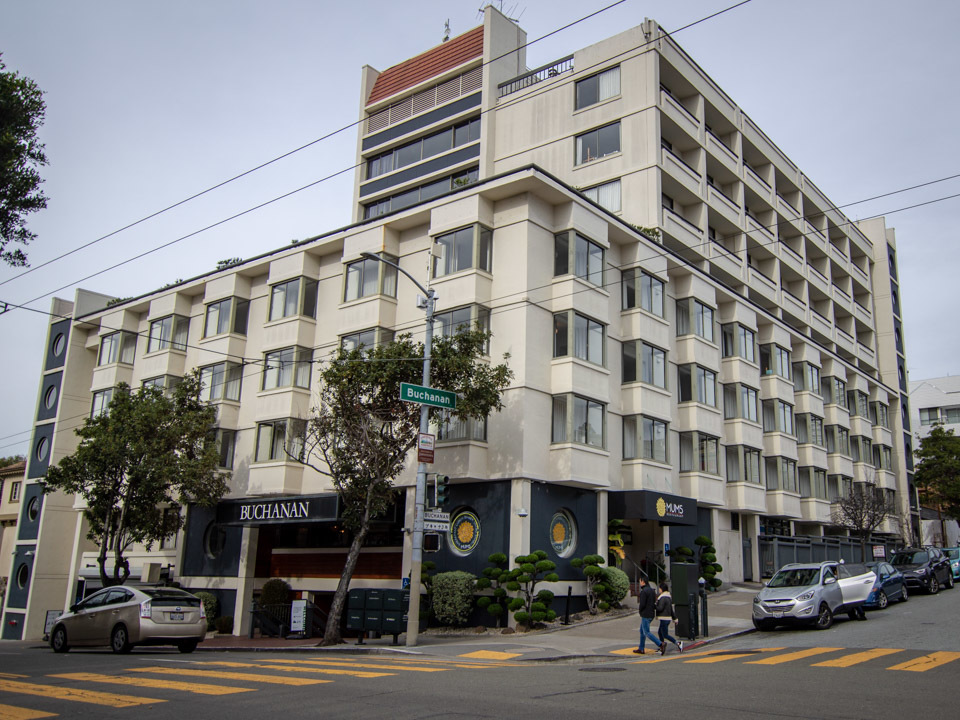
Tam admits that legacy status doesn't necessarily protect Mums from certain challenges.
"As anyone who owns a business here can tell you, the cost of rent, raw materials, and labor goes up every month," she said. With new shabu shabu restaurants opening across the city, Mums faces more competition than ever before.
But Tam and her family are optimistic for the future. Tam sees Mums as not only a source of comfort food — both western and Japanese — but also a gathering place for the community.
And, following in her father's footsteps, she's enjoyed getting to know many of the restaurant's regular customers over the years.
"My dad has grown old with the community," she said. "Now, it's my turn."




